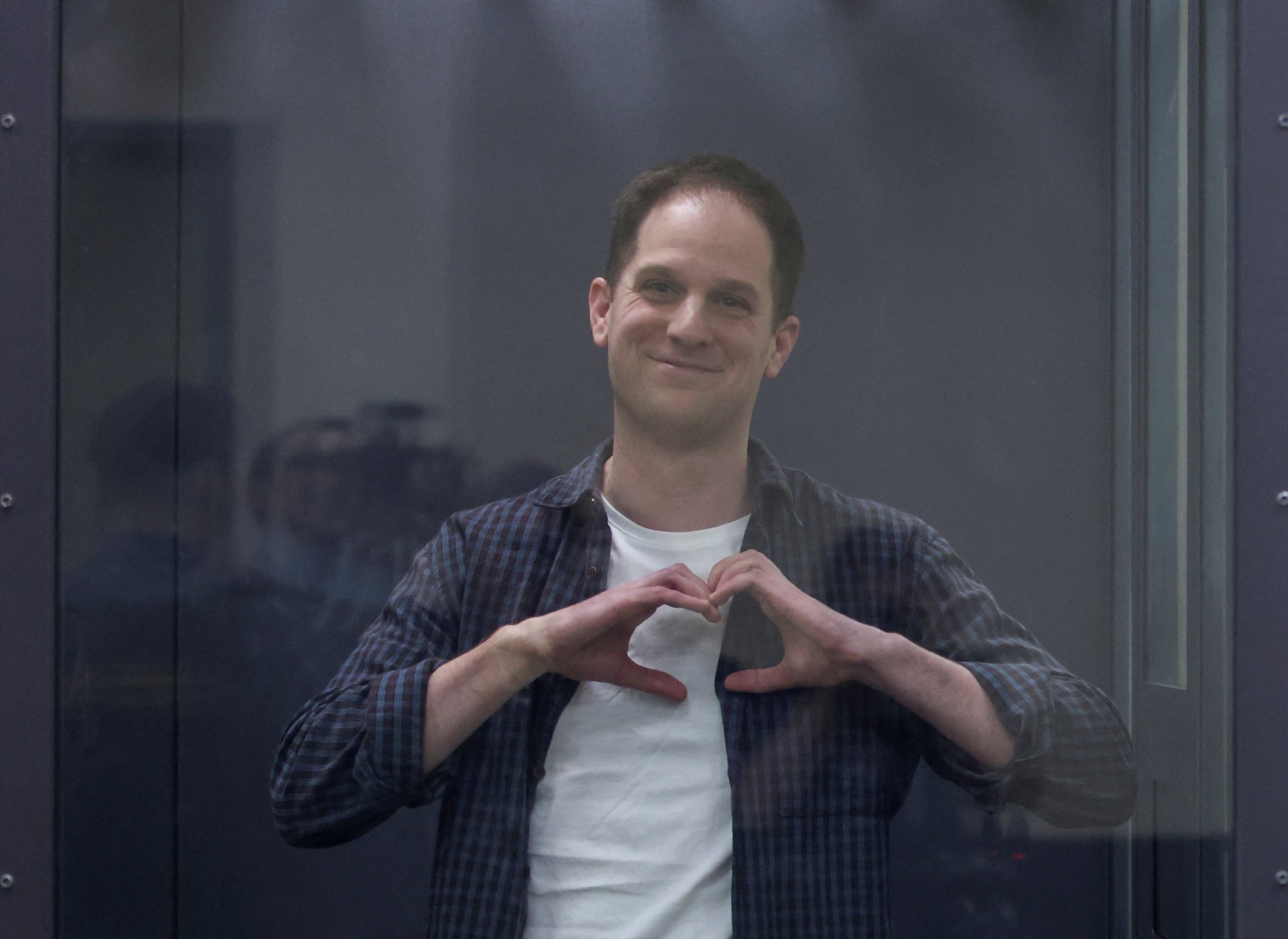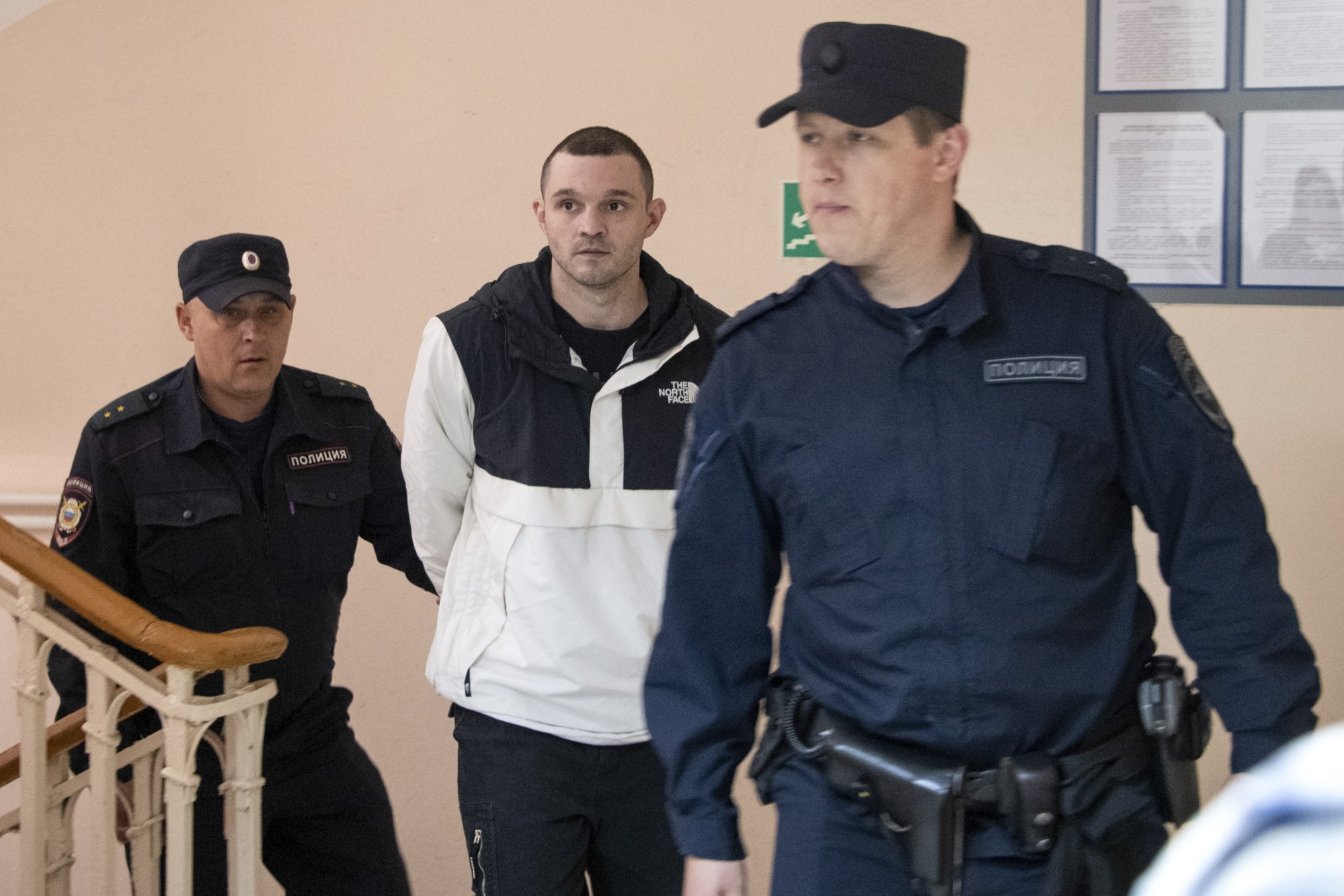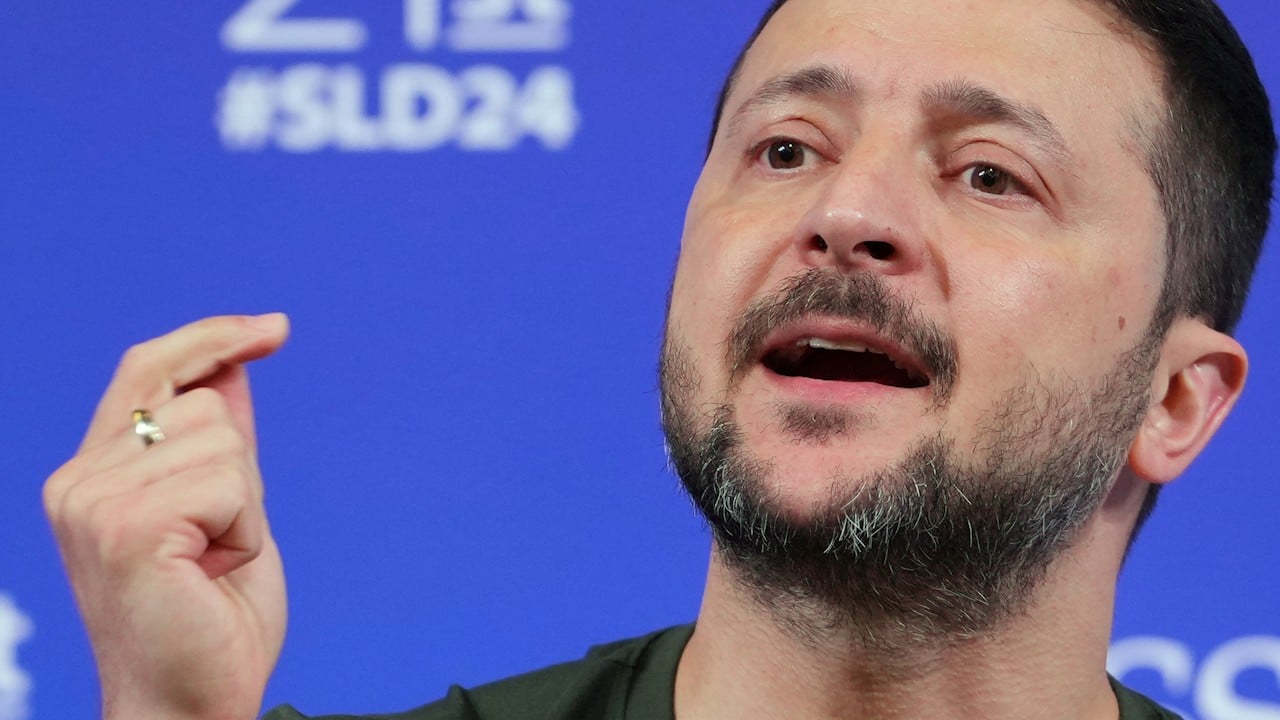He then sent the FSB the positions of soldiers and military equipment in the Kharkiv region and southern Mykolaiv region, they added.
“The enemy needed this information to conduct targeted air strikes on Ukrainian defenders,” the prosecutors said.
The man was detained near the frontline town of Kupiansk and “fully admitted his guilt”, they added.
Russia launched a fresh ground assault into the Kharkiv region last month, capturing pockets of territory across the border.
In May, Ukrainian security services detained six people accused of helping Russia strike a block of flats in the eastern Donetsk region, killing nine people.
A Swiss-based non-profit, the Centre for Humanitarian Dialogue (HD), said the arrested man was its employee and named him as Laurent Vinatier, 47, an adviser on Russia and Eurasia.
It added: “This information, when obtained by foreign sources, can be used against the security of the state. For these purposes, he repeatedly visited the territory of Russia, including the city of Moscow, where he held meetings with citizens of the Russian Federation.”
Investigators said the Frenchman, whom they did not identify by name, would be charged shortly under a Russian law on failing to register as a “foreign agent”, which carries a punishment of up to five years in prison.

A representative of HD said it was aware of Vinatier’s detention in Russia.
“We are working to get more details of the circumstances and to secure Laurent’s release”, the representative said.
The website of HD says it has operated since 1999 to “help prevent, mitigate and resolve armed conflict through dialogue and mediation” in countries such as Spain, the Philippines and Libya.
It was not immediately clear if the organisation has operations or staff in Russia.
Vinatier’s LinkedIn page says he has been an adviser to the Eurasia/Russia Programme at HD for 10 years, based in Geneva.
He completed his PhD on the Chechen diaspora and has lectured on international relations and political economy at various European universities. He has written several books and book chapters on Russia, the Caucasus and Central Asia.
He met representatives of the Moscow Orthodox Church in April 2022, according to a notice on a Church website.

A short video clip released by the Investigative Committee showed a man in jeans and a black shirt being detained in a restaurant by security officials with masks over their faces, escorted into a van and then being walked into a building. The suspect’s face was blurred.
Reuters was able to identify the restaurant shown in the clip as a cafe called Akademia in central Moscow.
Westerners arrested under Russian security laws since the start of the Ukraine war have found themselves caught up in the deepest crisis in relations between Moscow and the West for more than 60 years.
Last year, US reporter Evan Gershkovich was arrested on suspicion of trying to obtain military secrets and charged with espionage, which carries a sentence of up to 20 years.
Russian-American journalist Alsu Kurmasheva was arrested last October and is awaiting trial on charges including failing to register as a “foreign agent” – a designation that Russia applies to people and organisations it deems to be using foreign funding to conduct political activity, and which it has used extensively to clamp down on dissent.

Also on Thursday, Ukraine ordered the evacuation of children and their guardians from several towns and villages in the eastern Donetsk region, where fighting with Russia is intensifying.
President Volodymyr Zelensky has said Russian firepower is now concentrated in Donetsk, which the Kremlin claimed to have annexed in 2022 despite not having full control over it.
“This is an important decision designed primarily to save the lives of our children,” Donetsk governor Vadym Filashkin said on social media.
“The security situation in the region is constantly deteriorating and the intensity of shelling is increasing,” he added.
He listed the town of Lyman, which was briefly held by Russian forces before being recaptured, as well as several other villages near the front line, including the hamlet of Progres.
Additional reporting by Reuters


